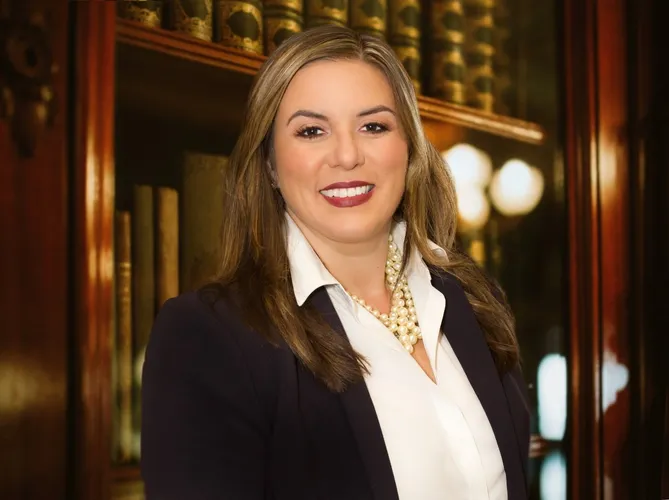
Milwaukee Wills Lawyer
Looking for a will lawyer in milwaukee?
- 28 Years of Experience
- Attorneys that practice exclusively creating new and amending Wills
- We can help with:
- Creating your Will
- Guiding Clients on the right choice for their specific situation
- Ensuring your Will complies with legal requirements
- Familiarity with a variety of unique Will scenarios
- For pricing visit our Pricing page.
Why should I create a will? A MKE Wills Lawyer perspective
Milwaukee-based Attorney Konstantakis protects her client’s future
- Avoid Intestacy Laws: Without a Will, how your assets are distributed will be determined by Wisconsin law. This may not align with your preferences. Creating a Will allows you to have control over how your assets are distributed.
- Minimization of Family Disputes: Creating a Will provides a legally binding document outlining your wishes. This minimizes conflicts and disputes between family members.
- Peace of Mind: A Will can provide you and your family members a peace of mind. Attorney Konstantakis ensures that you leave knowing you have made a plan for the future.
Our Expertise
We specialize in probate and estate administration. Schedule a consultation with Attorney Konstantakis for all of your Trust needs!
Our services as a Milwaukee wills lawyer
At our law firm, we specialize in providing comprehensive estate planning services, with a particular focus on drafting and managing wills. Here’s what you can expect when you choose us as your Milwaukee wills lawyer:
- Personalized Consultation: We take the time to understand your unique circumstances and goals.
- Expert Drafting: Our experienced attorneys ensure that your will is legally sound and clearly articulates your wishes.
- Comprehensive Estate Planning: In addition to wills, we can assist with other estate planning tools, such as trusts, powers of attorney, and healthcare directives.
Frequently asked questions: Will lawyer Milwaukee
Is a Will necessary?
A Will ensures your assets are distributed according to your wishes and that your loved ones are taken care of after you have passed. For pricing visit our pricing page.
What happens if I die without a Will?
When someone passes away without a Will in Wisconsin, their assets (like money, property, and personal belongings) are distributed according to state laws, known as “intestate succession.” Here’s how not having a Will can affect the distribution of your assets and why it can lead to complications:
State Laws Decide Who Gets What: If you don’t have a Will, you don’t have control over who inherits your assets. In Wisconsin, if you’re married, your spouse might get all or most of your estate, but if you have children, siblings, or other close relatives, they could also be entitled to a portion according to a pre-determined formula. For example, if you have a spouse and children, your spouse receives all of your community property and 1/2 or 1/4 of your separate property, with the remainder going to your children.
Delays in Distribution: Without a Will, the probate court has to appoint someone to handle your estate, which can take time. This person, known as an administrator, must then gather and value your assets, pay debts and taxes, and distribute the remaining assets. This process is generally more complicated and slower without a Will because there are more legal hoops to jump through.
Additional Costs: Probate without a Will often requires more court involvement, which can lead to higher legal fees and costs. The administrator may need to post a bond and hire an attorney, and these expenses are paid from the estate, potentially leaving less for your heirs.
Potential Family Disputes: When the law dictates who gets what, family members who feel slighted or left out can become upset, leading to disputes. These conflicts can be emotionally taxing and may result in legal battles (contested probate), further depleting the estate’s value.
Examples:
Example 1: Imagine a man who is married and has children from a previous marriage. Without a Will, his current spouse might receive half of his estate, and his children the other half. However, he might have preferred his spouse to inherit everything and provide for the children in a different way.
Example 2: Consider a single woman with no children but several nieces and nephews she is very close to. Under Wisconsin law, her parents would inherit everything if they are still alive, or her siblings if her parents have passed away. Her nieces and nephews would receive nothing, even though she might have preferred them to inherit her assets.
How often should I update my Will?
It’s important to keep your Will updated to reflect any significant changes in your life. This ensures that your assets are distributed according to your current wishes and can prevent legal complications after your death. Here are some instances when you should consider updating your Will:
Marriage: Getting married is a major life event. If you have a Will from before your marriage, it may not automatically include your spouse, depending on state laws. Updating your Will ensures that your spouse is accounted for in the way you desire.
Divorce: Similarly, if you get divorced, your existing Will might still include your ex-spouse as a beneficiary. Most people will want to change this to reflect their new marital status and ensure that their assets do not unintentionally go to their ex-spouse.
Birth of Children: The arrival of children is another critical reason to update your Will. This allows you to include them as beneficiaries in your estate. Additionally, you can appoint guardians for your children in the event that both parents pass away before the children are adults.
Changes in Financial Situation: Significant changes in your financial situation, such as receiving a large inheritance, acquiring major assets like a house, or experiencing a substantial increase or decrease in the value of your assets, might require adjustments to how you wish to distribute your estate.
Examples:
Example 1: Suppose a woman drafts a Will when she is single, leaving everything to her siblings. Later, she gets married and has a child. Without updating her Will, her husband and child might not receive anything from her estate, which might not have been her intention.
Example 2: Consider a man who originally makes a Will leaving his entire estate to his wife. They later divorce, and he remarries. If he does not update his Will after these events, his assets could unintentionally go to his first wife, instead of his current spouse or any children he may have had from either marriage.
Example 3: A person initially makes a Will when their finances are relatively modest. Years later, they start a successful business, greatly increasing their wealth. If they don’t update their Will, their original estate plans may no longer adequately reflect how they wish to distribute their now much larger estate.
Can I change my Will after it’s created?
Yes! Attorney Konstantakis can also help with changes and addendums to your Will (called codicils). It’s important to get legal help with changes to your Will to ensure the changes are valid. See our pricing chart for more information about hourly rates for custom touch-ups and smaller changes.
Who should I appoint as the executor of my Will?
When choosing your executor, you should consider someone trustworthy, organized, and capable of handling financial matters. This is because an executor is in charge of managing your estate and ensuring your wishes are carried out.
Is a lawyer necessary to create a Will?
It is advisable to consult with a legal professional when creating a Will to ensure that your Will is legally valid and properly executed. This is especially important for complex estates. We recommend you contact your Wisconsin Will Attorney.
Wills vs trusts
For most people it is important to have both a will and a trust to ensure that all parts of your estate are accounted for. Wills and trusts serve different purposes, go through the probate process differently, and allow for different kinds of control with different goals. Therefore, it is important to consult an experienced attorney for the right plan for you. See our page on trusts for more information.
Wills:
- Purpose: Wills specify how your assets should be distributed after your death. Wills are typically less complex and some goals would require a trust.
- Probate: A will typically goes through probate, which is a court-supervised process of validating the will and distributing assets. Having a will makes probate significantly easier, but does not avoid the process like trusts do.
- Privacy: Wills become public record once they go through probate.
- Control: You name an executor in your will, who manages your estate through probate.
- Specialized goals: You can also use a will to appoint a guardian for minor children.
Trusts:
- Purpose: Trusts hold assets for the benefit of beneficiaries according to your instructions. Trusts are generally more complex and allow for more complex goals.
- Probate: Assets held in a trust generally avoid probate, which can save time and costs.
- Privacy: Trusts typically remain private documents, unlike wills.
- Control: You can specify how and when assets are distributed (e.g., only after certain conditions are met, such as child turning a certain age).
- Specialized Goals: Trusts can be used for specific purposes like charitable giving or managing assets for minor children.
